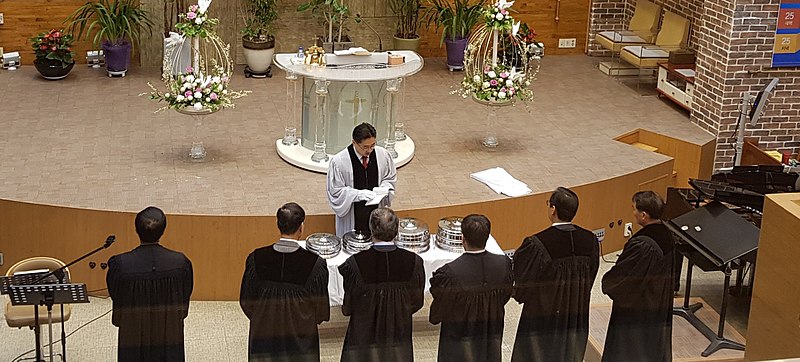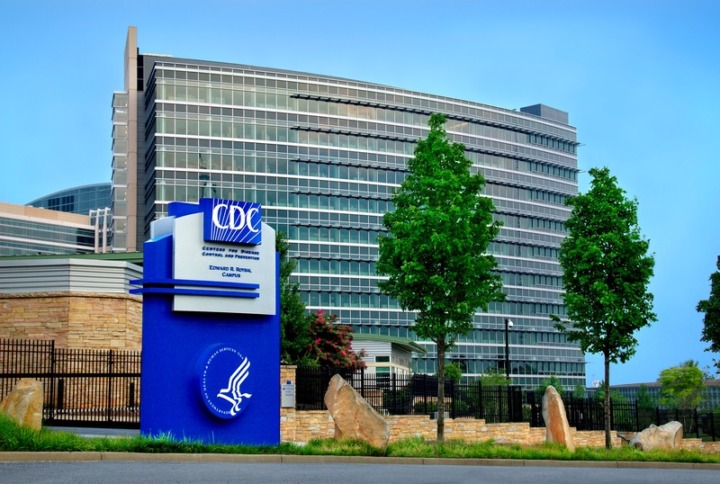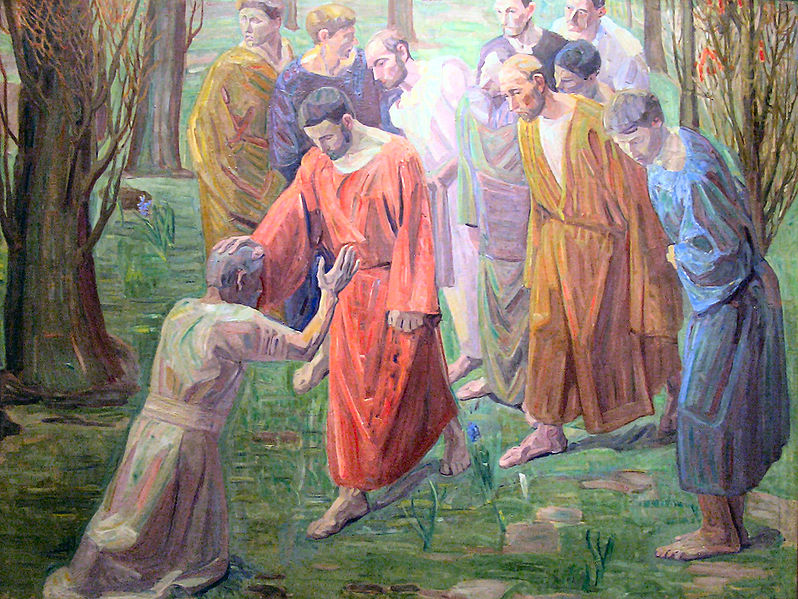この記事は2月18日に米国「クリスチャニティー・トゥデイ」に掲載されたものです。日本の今の状況とは違うことを踏まえてお読みください。(クリスチャンプレス編集部)
「聖餐式のやり方を変えるか、それ自体をやめるべきか」という議論が、毎週行われる教会のスタッフ会議で持ち上がっている。新型コロナ・ウイルスの大流行は、私たち牧師の心を疲弊させている。
私たちの教会は、ニューヨーク南東とチャイナタウンが交わるところにあり、近くのニューヨーク大学で学ぶ中国人留学生に対して活発な伝道活動を行っている。数日前には、春学期のため、留学生が中国から戻ってきた。
[toggle] “Should we cancel or change the way we serve Communion?” The question arose in our weekly staff meeting. Fear from the coronavirus (2019-nCoV) outbreak consumed the hearts of our pastors. Our church sits at the intersection of Chinatown and the Lower East Side in New York City. We have a thriving outreach to international Chinese students at nearby New York University. Several days earlier, these overseas students returned from China for their spring semester. [/toggle]
聖餐式(写真:칼빈500)
彼らを迎え入れるため、私たちの教会では大がかりな交流イベントを企画していた。しかし、まだニューヨークでは新型コロナ・ウイルスの感染は報告されていないが、感染を恐れてそのイベントを取りやめることになった。牧師の中には、2003年に中国で大流行したSARS(サーズ、重症急性呼吸器症候群)の混乱の経験者もおり、彼らが不安がるのはもっともだった。新型コロナ・ウイルスが世界的に広がりを見せたことにより、米国内の中国系教会は春節(旧正月)のイベントや祈祷会、またその他の伝道活動を中止した。家族と教会員を守ることを最優先したのだ。
[toggle]To welcome them back, our church planned a significant fellowship event. Although there were no confirmed cases of the coronavirus in New York City, we canceled the event for fear of contagion. Some of our pastors had experienced the effects of the 2003 SARS epidemic on their communities in China; their worries were legitimate. Due to heightened global coverage of 2019-nCoV, many stateside Chinese Churches scratched Lunar New Year events, prayer meetings, and other ministries. Protecting their congregations and families was a top priority. [/toggle]それでも、米国に戻ってきた中国人留学生は、礼拝し、共に交わりを持つことを望んでいた。ある学生は涙ながらに私に訴えた。「中国にいる家族や友人、隣人の健康のために祈ってほしい」と。手を置いて祈りながら私は、教会が決めあぐねている決定の二面性に気づいた。「隣人を愛している」と言いながら、彼らがいちばん必要としている時に教会の扉を閉ざしていいのだろうか。病を癒やし、見えない人の目を開き、規定の病にかかった人に触れた救い主を信じていながら、なぜ「この新型コロナ・ウイルスに打ち勝つ力があるだろうか」と疑うのか。
[toggle]Still, the returning Chinese students desired to worship, gather for fellowship, and pray. One student in particular approached me in tears: Would I pray for the health of her family, friends, and neighbors in China? As I laid hands on her and prayed, I realized the duplicity of our church’s pending decisions. How could we say we loved our neighbors yet consider shutting our doors in their time of greatest need? If we believed in a Savior who healed the sick, bestowed sight to the blind, and touched lepers, why did we doubt his power to reign over this coronavirus? [/toggle]
米国疾病予防管理センター・アトランタ本部(写真:James Gathany)
私は以前、米国疾病予防管理センター(CDC)で医務官を務め、国際保健学の教授だった。現在は牧師として、「教会は、レッテルに翻弄(ほんろう)されるのではなく、愛によって導かれるべきだ」と信じている。私たちは恐怖で縮こまるのではなく、思いやりを持って人々と接するべきだ。教会は、健全な神学や科学、公衆衛生を信頼すべきであり、ソーシャル・メディアのヒステリーやうわさに屈するべきではない。教団、教会、信徒は、このウイルスの流行や世界的拡大の中で大きな役割を果たす。それは他の病気でも同じだ。
[toggle]I am a former Centers for Disease Control and Prevention medical officer and global health professor. Now, as a pastor, I believe the church must lead in love rather than be manipulated by stigma. We are called to provide compassion instead of cowering in fear. Churches must trust sound theology, science, and public health instead of succumbing to rumors and hysteria from social media. Denominations, churches, and believers can play a vital role during outbreaks, epidemics, and other diseases. [/toggle]私たちにできることはたくさんある。
[toggle]There are a number of steps we can take. [/toggle]公衆衛生の意識を高める
[toggle]Raise Public Health Awareness[/toggle]新型コロナ・ウイルスの感染、症状、予防、治療について、教育的なメッセージを提供する。世界的な保健危機が高まり、米国内でパニックになる人が増える一方で、12日の時点でCDCが検査した人のうち、新型コロナ・ウイルスに陽性反応を示したのは14人しかおらず、347人は陰性、66人は結果待ちだと発表した。公衆衛生当局によって注意深く監視されている初期状況のままだ。新型コロナ・ウイルスに関して不安を覚える教会員に対して教会は、健全なアドバイスを伝え、情報を提供し、心配を和らげることができる。
[toggle]Provide educational messaging on transmission, symptoms, prevention, and treatment of the coronavirus. Despite the increasing global health crisis and panic among many in the United States, the CDC has reported only 14 individuals testing positive for 2019-nCoV as of February 12, with 347 negative and 66 pending results. It remains an emerging situation closely monitored by public health officials. Churches can disseminate sound recommendations while helping inform and allay concerns of members anxious over 2019-nCoV. [/toggle]米国内では、多くの中国人牧師が、礼拝中にマスクを着用したり、握手をやめたり、聖餐式を調整したりして、それぞれの判断で対策をとり始めている。私たちの教会では、聖餐式のやり方を変えるべきかについて議論した。現状では、聖餐式用のトレーに、割いたパンと、それぞれが取るための小さな杯を載せて提供している。医学博士、また疫学者として、聖餐式をもっと衛生的に行えないかと考えもするが、まず牧師に必要なのは新型コロナ・ウイルスの伝染リスクをよく理解することだろう。
[toggle]Many Chinese pastors in the US have begun implementing their own measures, such as wearing masks during worship, suspending handshakes, and adjusting their Communion practices. Within our own church, we debated the need to officiate Communion differently. Currently, we serve broken pieces of bread on a Communion tray together with individual flasks of juice. As a medical doctor and epidemiologist, I am open to serving Communion more hygienically; but first, pastors need to better understand the 2019-nCoV transmission risk. [/toggle]
マスクがないと飛沫感染するリスクが高くなる(写真:James Gathany)
保健当局の調査がまだ行われているが、新型コロナ・ウイルスは、動物や人間の間で共通のウイルスの一種であることが分かっている。新型コロナ・ウイルスの典型的な感染は、おもに感染者の咳(せき)やくしゃみからの飛沫(ひまつ)感染だ。したがって、予防のためにはまず、石鹸と水での手洗い、咳をする際には口を覆うこと、(目や鼻や口など)顔の粘膜を汚れた手で触らないことだ。常識的に考えて、体調の悪い時には家を出ず、病気の人との接触も控えるべきだろう。
[toggle]Though still under investigation by health officials, 2019-nCoV is a part of a large family of viruses common to animals and humans. Transmission for typical coronaviruses occurs primarily via respiratory droplets from infected persons via coughing or sneezing. Preventive measures should therefore include washing hands with soap and water, covering coughs, and refraining from touching facial orifices with dirty hands. Common sense tells us that we should stay home when feeling ill and avoid those who appear sick. [/toggle]「前のめりで積極的に対策を行いたいところですが、今は証拠に基づいた、現状に適した行動をとりたい」と、CDC国立予防接種・呼吸器疾患センター長のナンシー・メッソニアーは1月31日の会見で述べた。「たとえば現在、CDCは、一般の人々にマスクの着用は奨励していません。ウイルスは公共の場では広がっていないからです」
[toggle] “We want to lean forward and be aggressive, but we want our actions to be evidence-based and appropriate to the current circumstance,” Nancy Messonnier, director of the CDC’s National Center for Immunization and Respiratory Diseases, said during a January 31 press conference. “For example, CDC does not currently recommend the use of face masks for the general public. The virus is not spreading in the general community.” [/toggle]同じように今は、聖餐式や教会員とのあいさつ、その他の牧会のやり方を変える時ではない。CDCは、「礼拝や交わり、他の教会活動を中止するように」との勧告は出していない。しかしながら現在、CDCと米国保健社会福祉省は、中国からの旅行者に対して、米国到着から14日間の経過観察を義務づけている。個人のリスクはそれぞれだが、ある人は、他の人との接触や行動に制限がかけられるだろう。
[toggle]Likewise, now is not the time to change Communion, congregational greetings, and other pastoral duties. The CDC does not advise abandoning worship, fellowship, or other ministry activities. However, the CDC and the Department of Health and Human Services does currently require travelers from China to be monitored for up to 14 days upon arrival to the US. Depending on the individual’s level of risk, some may be asked to restrict their movement or limit contact with others. [/toggle]事態が進むにつれて、政府や州、そして地元の保健所からの要請に牧師は注意する必要がある。ただ、それ以上のことについては、医療従事者や地元の保健所が対処すべきだろう。積極的に最新の状況を把握しつつ、教会にチラシを貼ったり、礼拝や集会の時に予防法をアナウンスしたりすることで、どうしたら新型コロナ・ウイルスに対して効果的に対処できるか、教会員を助けることができる。コミュニケーションが上手に取れていれば、教会員の心に平和を提供し、心配をやわらげ、希望をもたらすことができる。
[toggle]As the situation unfolds, pastors should monitor federal, state, and local health department recommendations. Additional concerns should be addressed to health care professionals or local health departments. By actively keeping up to date, posting flyers, and announcing key recommendations during worship services and gatherings, churches can help congregations deal with 2019-nCoV effectively. Good communication will provide peace, pacify worry, and offer hope. [/toggle]
ニール・ラーセン・スティーブン「規定の病を患っている人の癒やし」
弱者に手を差し伸べる
[toggle]Care for the Vulnerable[/toggle]新約聖書の時代、規定の病はどの病気よりも恐れられ、忌み嫌われていた。患者はたいてい人々から隔離され、疎外されていた。しかしイエスはその患者から逃げなかった。彼は手を差し伸べて、彼らを癒やした。イエスは言葉だけでも癒やすことができたので接触を避けることもできたが、そうはせずに、人に触れる力を通して愛を伝えようとした。
[toggle]In New Testament times, leprosy was among the most feared and devastating of illnesses. Lepers were typically quarantined and ostracized by the public. Jesus did not run from people with leprosy. He reached out his hand to heal. Jesus could have healed by word alone and avoided contact, but instead he extended love though the power of human touch. [/toggle]イエスの地上における伝道では、体に触れることは癒やしを行う一般的な手段だった。イエスは規定の病を患っている人に手を差し伸べて触れ、ほかの人々が感染や律法上の汚れを恐れるリスクを冒した(マタイ8:2~3)。イエスのように私たちも、新型コロナ・ウイルスで体調を崩した人を恐れるべきではない。彼らが最も弱い時にこそ、私たちはそばに行くべきだ。
[toggle]During Jesus’ earthly ministry, physical contact was a common means of his healing. With a leper, Jesus risked what others would have feared as both contamination and ritual defilement (Matt. 8:2–3). Like Jesus, we should not be afraid of those who are sick with 2019-nCoV. We need to draw near when they are most vulnerable. [/toggle]これは、無防備に病気の人の世話をするということではない。医療提供者が米国疾病予防管理センターでエボラ出血熱の流行と戦っていたとき、致命的な病気への感染から身を守るため、最大限の予防措置を講じていた。たとえば、液体を通さず浸透もさせないガウンや顔面保護シールド、手袋、靴カバーなどで防御していたのだ。たいていの場合、患者を診てから防御服などを脱ぐのに何時間もかかった。
感染した患者は、その大きな苦しみと苦悩の中で、家族と抱き合ったりキスをしたりすることで慰められることさえ許されなかった。そのような孤独な時に、エボラ出血熱の患者は、防御服姿という限界があっても、医療提供者が思慮深く触れてくれることに感謝していた。ある人にとっては、それがこの世で最後の人との触れ合いになったからだ。
[toggle]This doesn’t mean we are to be reckless in our care of the sick. While working with the Ebola outbreak with the Centers for Disease Control, health care providers took the utmost precautions to protect themselves from contracting the deadly disease. Personal protective equipment included fluid-resistant and impermeable gowns, face shields, gloves, and shoe covers. Often, it took hours preparing to see patients and then doff protective equipment. In their greatest affliction and anguish, affected patients were not allowed consolation by the hug or kiss of family members. During these lonely moments, Ebola patients were thankful for the thoughtful, human touch of health care providers, even within the limits of protective equipment. For some, this would be the last touch they’d ever receive. [/toggle]イエスは私たちに、「病気で苦しむ人の手となり、足となり、声となるように」と呼びかける。私たちにとって時にこれは、自分の経験以上の知識を持っている専門家に相談することを意味する。それはまた、公衆衛生上の懸念のため、予防措置を取ることも意味する。しかしそれは、復活された王に会いたいと願う人を追放することでは決してない。私たちは逃げるのではなく、福音をもって病気に立ち向かうべきだ。
[toggle]Jesus calls us to be his hands, feet, and voice to those who suffer illness. Sometimes, for us, this may mean consulting professionals who possess knowledge beyond our own expertise. It may mean taking precautionary measures in consideration of public health concerns. But it should never mean ostracizing those who desire to meet the Risen King. Instead of running away, we should move toward the ailing with the gospel. [/toggle]レッテルや外国人嫌悪と戦う
[toggle]Combat Stigma and Xenophobia[/toggle]クリスチャンとして私たちは、さまざまな人種や民族、文化の壁を越えて一つになる。最近、フランスの雑誌が、この病気の流行についてのトップ記事のタイトルを、「黄色い(アジア人の肌の色を揶揄〔やゆ〕した差別表現)警告」「新たな黄色い危険?」と太字のゴシック体で掲載したと、CNNが報道した。この雑誌は後に謝罪したものの、人種差別的な悪口のダメージは大きかった。ニューヨークのチャイナタウンでは、中国語を話す人を人々は避け、「この近所のレストランで食べて大丈夫か」と心配した。ヘビやネズミ、ハリネズミ、コウモリといったエキゾチックな野生動物を食べるなど、中国料理の習慣をめぐっても、外国人嫌悪は再燃した。
[toggle]As Christians, we unify across racial, ethnic, and cultural boundaries. Recently, CNN showed a front-page title in a French magazine article on the outbreak. In bold, block letters were the words “Yellow Alert” and “New Yellow Peril?” Though the magazine eventually apologized, the damage from the racist epithets was already done. Among the streets of Chinatown, New York, people avoid Chinese speakers and worry if it is safe to eat at restaurants in the neighborhood. Xenophobia has resurfaced over Chinese culinary habits, such as eating exotic wildlife like snakes, rats, hedgehogs, and bats. [/toggle]人を肌の色で差別し、他の言語や文化的行為を誤解するのはとても簡単だ。しかし、教会として、私たちはどんな人種や民族、文化の人であっても、「隣人を自分のように愛しなさい」と教えられている(マタイ22:39)。このような感染症の危機の際には、非常にデリケートな状況の場合もあるが、本音で語らい、文化について広めることで、うわさの払しょくができるだろう。誇張され、ステレオタイプとされることに教会は立ち向かい、キリストのような思いやりを持って、教会の戸口に立つ人たちに接するべきだ。
[toggle]It is all too easy to judge others based on the color of their skin, a misunderstanding of their language, or misconstrued cultural practices. Yet, as a church, we are called to love our neighbors as ourselves regardless of race, ethnicity, or culture. Though circumstances may be exceedingly delicate during health crises, it is possible through honest conversations and the sharing of culture to dispel rumors. The church can take a stand against rhetoric that reinforces stereotypes while offering Christlike empathy to those at its doorsteps. [/toggle]執筆者のスティーブン・コーは、ニューヨークの中華アライアンス教会牧師、アライアンス神学校非常勤講師、前CDC医務官、前ボストン大学国際保健学教授。
本記事は「クリスチャニティー・トゥデイ」(米国)より翻訳、転載しました。翻訳にあたって、多少の省略をしています。
